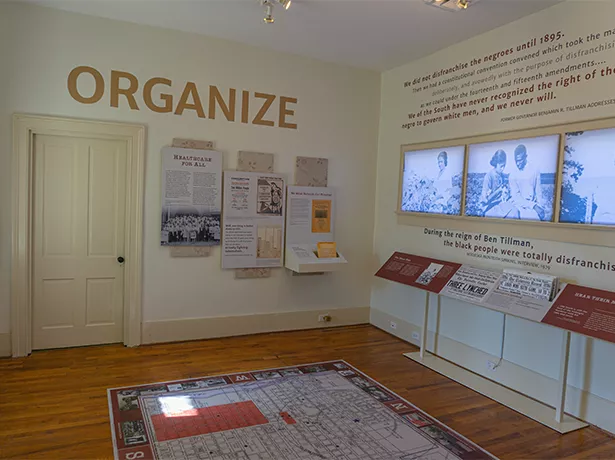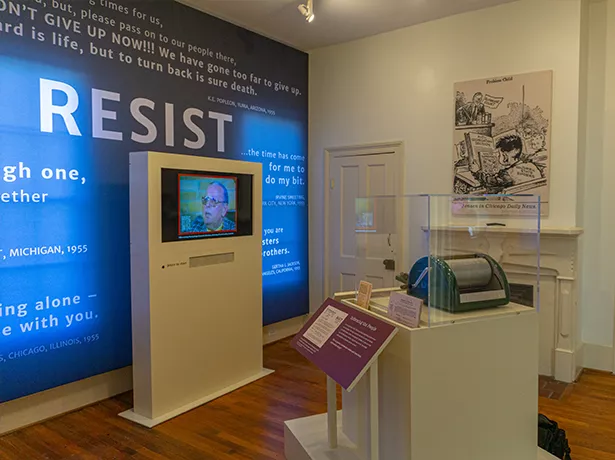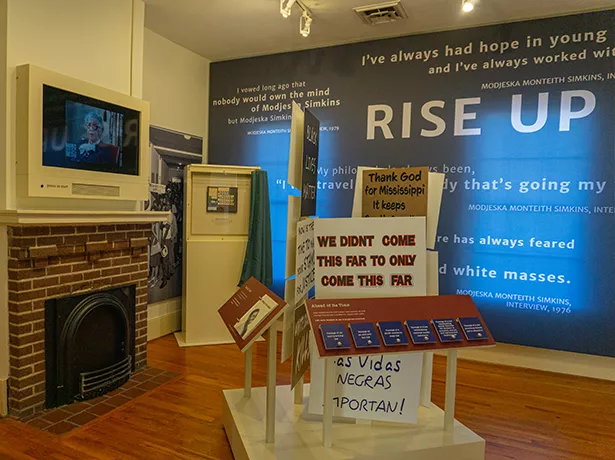Modjeska Monteith Simkins House
Modjeska Monteith Simkins House
Built between 1890 and 1895, this one-story cottage was home to Modjeska Monteith Simkins, one of South Carolina's greatest human rights advocates, from 1932 until her death on April 5, 1992. Today visitors learn about her pivotal role in the long civil rights movement through the multimedia exhibit, “An Advocate of the People."
History
From a young age, Modjeska Monteith Simkins practiced social activism. Her career involved working with local and national civil rights leaders and NAACP lawyers such as Thurgood Marshall, who stayed at her home. Simkins' efforts in the realm of education, public health, and human rights led her to receive the Order of the Palmetto-the State of South Carolina's highest honor-before her death in 1992.
Today, her former residence continues to be a meeting space for people committed to improving the lives of the most underrepresented citizens in the community.
Virtual Tour
Take a virtual tour of "Modjeska Monteith Simkins: An Advocate of the People" and learn more about the life of one of South Carolina’s greatest human rights advocates.
 This material was produced with assistance from the Historic Preservation Fund, administered by the National Park Service, Department of the Interior. Any opinions, findings, and conclusions or recommendations expressed in this material are those of the author(s) and do not necessarily reflect the views of the Department of the Interior.
This material was produced with assistance from the Historic Preservation Fund, administered by the National Park Service, Department of the Interior. Any opinions, findings, and conclusions or recommendations expressed in this material are those of the author(s) and do not necessarily reflect the views of the Department of the Interior.





